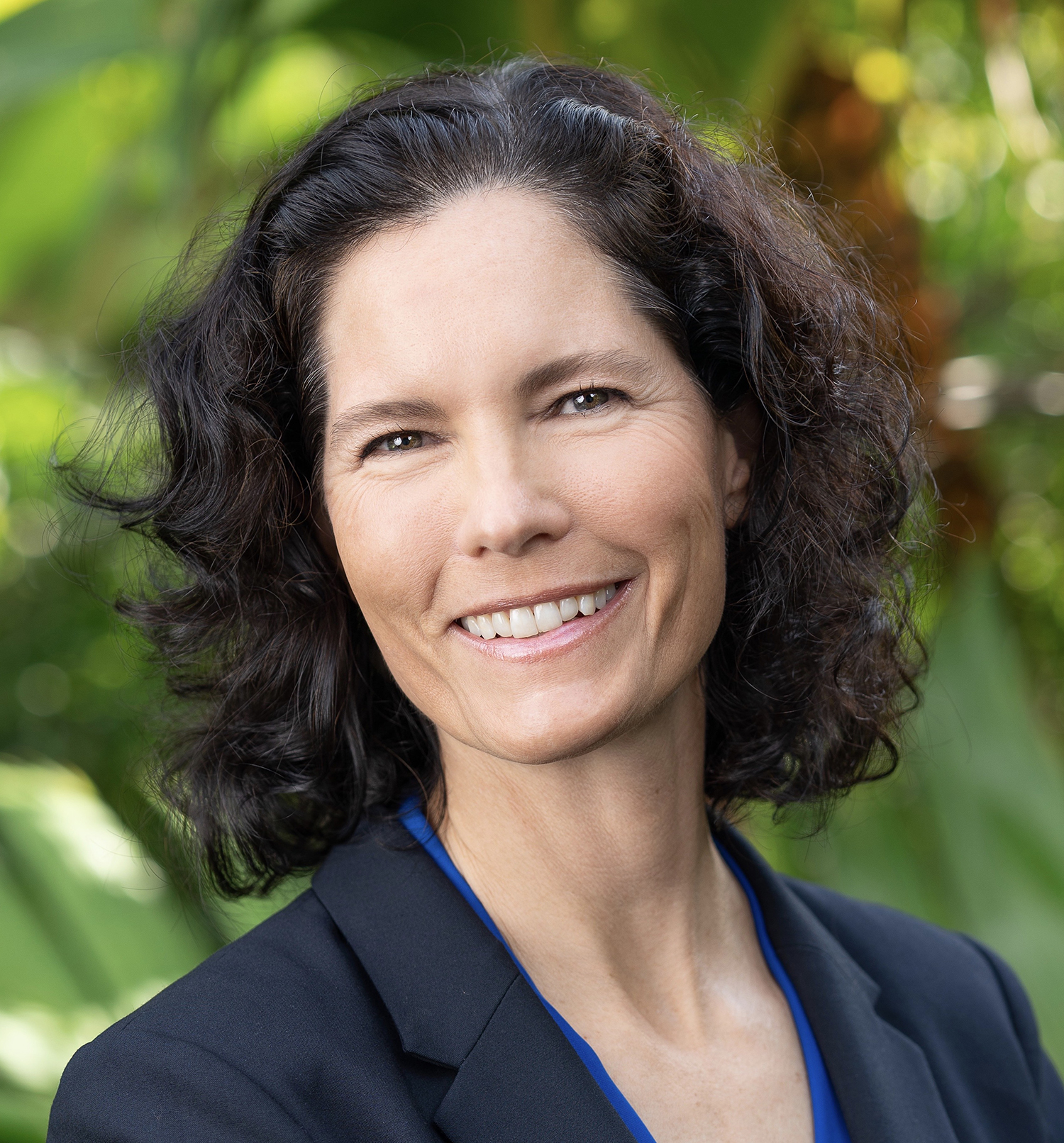2024 Election: Lisa Marten

Name on ballot:
Lisa Marten
Running for:
State House – District 51
Political party:
Democrat
Campaign website:
lisamarten.com
Current occupation:
State Representative 2 terms / Community Forestry
Age:
57
Don't miss out on what's happening!
Stay in touch with breaking news, as it happens, conveniently in your email inbox. It's FREE!
Previous job history:
Executive Director, Healthy Climate Communities; Assistant Professor, John A Burns School of Medicine, UH Mānoa; Founding Board-member Trees for Honoluluʻs Future; several jobs in international health in Asia and Latin America.
Previous elected office, if any:
State House, Kailua Neighborhood Board
Please describe your qualifications to represent the people in your district.
I grew up in Kailua, went to public schools here, have raised my children here, and am supporting my parents while they age here. Like many of my constituents, I love the mountains, the ocean and the communities of the Windward side. I am 100% committed to working hard to protect them. I have a Master in Public Policy from Harvard and a Doctorate in Public Health from Columbia so I have always wanted to use Government policy and services to make things better. As Human Services Chair this year I was able to draw on my professional background in health to advance legislation for kūpuna, keiki and the disabled. I am a very hard worker, and have been busy this interim with the Departments to prepare initiatives for next session. My non-profit works with the local schools and community groups on environmental education and community forestry which keeps me connected to schools and aware of challenges they have. This is important as education is critical and a big part of the legislative budget.
What is the most-pressing issue facing residents in your district and how would you address the problem?
My constituents’ biggest concern is mental health related homelessness. We need to address their trauma and mental illness earlier in life. Last year I funded a mobile crisis service specifically for children and their families or care givers to stabilize crises, and then follow up for 2 months with counseling, skills training and referrals so caregivers can better manage the children. Operations start in July. To improve Child Welfare Services, I helped secure an operational audit, a working group to gather recommendations from those with lived experience, and increased payments to their contractors. Now, as Human Services Chair, I worked with the courts to require health and school data of permanent guardians receiving foster care payments, and secured ongoing funding to incentivize adoptive parents to do so.
For adults, I deployed office resources last year for full-time outreach in District to connect people to services. I connected all local service providers with each other and trained them on programs to get severely mentally ill people (who do not know they are ill) on medical care. I have worked on a permanent State lease for one homeless facility in Waimānalo, and am working on expanding capacity at another. I funded a program at WCC to train mental health workers giving them both skills and upward mobility.
What would you propose to be done at the state level to help residents cope with Hawaii’s high cost of living?
This is a really challenging problem. Some measures I have supported to increase income since I have been in office (just 4 years) include: raising the minimum wage, making the earned income tax credit permanent and refundable, giving some of our surplus back to people in the form of a rebate, creating a retirement savings program for people who work for small businesses, making the earned income tax credit permanent and refundable, and passing a significant income tax reduction while increasing in the standard deduction.
Other measures have been to address the largest expense for most households: housing. Since I have been in the legislature, we have put well over $1 billion into affordable housing, including for DHHL. We also passed legislation to allow counties to reduce vacation rentals, including ones that sued the City to allow themselves to write contracts for vacationers once every 30 days. Hopefully this housing stock will come back into residential use and housing prices will come down, or at the very least stop going up.
For the future, I would like to exempt food and medication from general excise taxes, and to continue to fund and build more affordable housing.
What can the state Legislature do to help Hawaii home and condo owners with rising property insurance rates?
We need to adapt to climate change and the increased risks from extreme weather events – that is what is driving up insurance. This means bulding for sea level rise, for storms, and better managing fuel loads to prevent wildfires.
Can Hawaii’s tourism-dependent economy be diversified, and, if so, what can state government do to support the effort?
Energy and agriculter are the low hanging fruit because we send such a large portion of what we earn with tourism right back out of the State to purchase imported oil and food. Producing our own energy and more of our own food makes us more secure, healthier and keeps the dollars and jobs here. That is why I have written and supported legislation to encourage further development of renewable energy and agriculture.
I started lobbying for our transition to local, renewable energy which will keep money and jobs here long before I thought of running for office. I also support an increase in agricultural production for local consumption. We need to invest in farm infrastructure and create opportunities for young farmers to access land. The place to start is with our State land. I wrote a Bill that passed this session to get better data on whether our State agricultural leases are actually being farmed, and the finances around lease transfers to see if they are affordable to real farmers.
What would you propose to help increase affordable housing in Hawaii?
The easiest thing is to put all the vacation rentals back into the residential housing stock. The current Mayor and City Council have shown an interest in doing this, after previous administrations that did not. The State supported the counties by passing a law this session that allows the counties to amortize existing land uses. This is important because when the county tried to increase the definition of a short-term rental from 30 days to 90 days, they were sued and lost in court. Those who were already doing 30-day vacation rentals claimed a “taking” and won the right to continue to operate their businesses. I also think we should invest in DHHL so they can continue to get people off the wait list, as we did with the $600 million 2 years ago. DHHL has “super powers” in that it can buy land cheaply and rezone it making it a less expensive way to house people. The lots are also big enough to accomodate extended families. Giving the beneficiaries what they are owed reduces the number of people who need affordable housing.
What can state government do to better support and improve public education in Hawaii?
Our students deserve trained, professional teachers, including for music, art, PE and professional librarians. We need to pay them a living wage and support them so they can raise the next generation. I also support early college and trade opportunities so those who want to transition straight to work or an apprenticeship can develop skills to do so. A four year college is not the only path to success.
Should the state continue to pursue building a replacement for Aloha Stadium in Halawa? Please explain.
I think the priority for Halawa should be affordable housing to make the costly rail line that goes there work for us.
Should members of the state Legislature have term limits like Honolulu’s mayor and City Council members?
I do support term limits. I think the terms should be long and the exact length should be the subject of public debate. Effective legislators need to become knowledgeable about a wide range of issues and it takes time on the job to do so. Within a term there is an opportunity to vote out incumbents every 2 or 4 years. This year 19 of 51 House members were new, so there is definitely turn over, though less so in the Senate. Despite existing high turn-over in the legislature, one reason I support term limits is to discourage career politicians. I worry that elected officials who do not have other professional credentials or career options may be too desperate to hold on to their jobs and be more likely to be for sale to interests that will help keep them in office.
What reforms, if any, would you propose to make local government more transparent to the public?
The best way to promote transparency is to promote direct participation. When people see what is going on, they can hold their legislators accountable.
I encourage my constituents to get involved, and my office helps teach them how. I also host school field trips where I conduct mock hearings where the students play all the roles, including testifiers so they can learn how to do it. Hawaiʻi may be the only State with a staffed Public Access Room that provides residents with education, computer access and other resources. I wish it was busier.
Online testimony has improved public access for everyone – particularly residents from neighbor islands, those who work, those who care for others, and those with disabilities. I am surprised how few take advantage of it. When people testify, I listen. I amend Bills all the time based on testimony from those who are directly impacted by a Bill or who would be part of implementing it. The records of hearings are available on YouTube. Members of the public can witness the full hearing for a Bill anytime, even if they only learned about the issue after it passed out of committee. If I vote a way you don’t agree with, you can make me explain myself, and maybe make me change my mind.
What will be your top priority if elected?
My top priority will be to reduce mental health and substance abuse related homelessness in our District and in our State. We need to start early in people’s lives to prevent or overcome trauma that causes many of those on the street to end up there. We need to expand treatment and residential options so they have somewhere to go. We need to take better advantage of opportunities through the criminal justice system to get people on medical or drug treatment that might give them a second chance at life. I have been supporting solutions already. For example, we funded a Crisis Center in Iwilei that can keep 16 people for 24 hours and another 9 for longer term stays, and passed a law to make it a third involuntary option for HPD to take “Mental Health 1” calls, other than jail or the Emergency Room. There, specialists will be best equipped to transition people to services on site or off site while reducing the strain on HPD and the hospitals.
Is there anything more that you would like voters to know about you?
People say they want elected officials that are honest, and that represent residents rather than special interest groups. I am that official.
View more candidate questionnaires or see more Hawaii elections coverage.

 Stay updated on Hawaii and national elections coverage
Stay updated on Hawaii and national elections coverage



